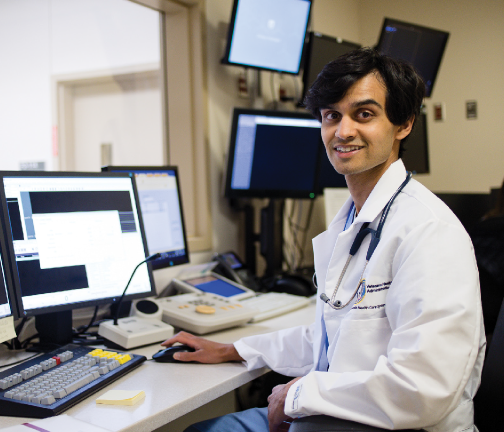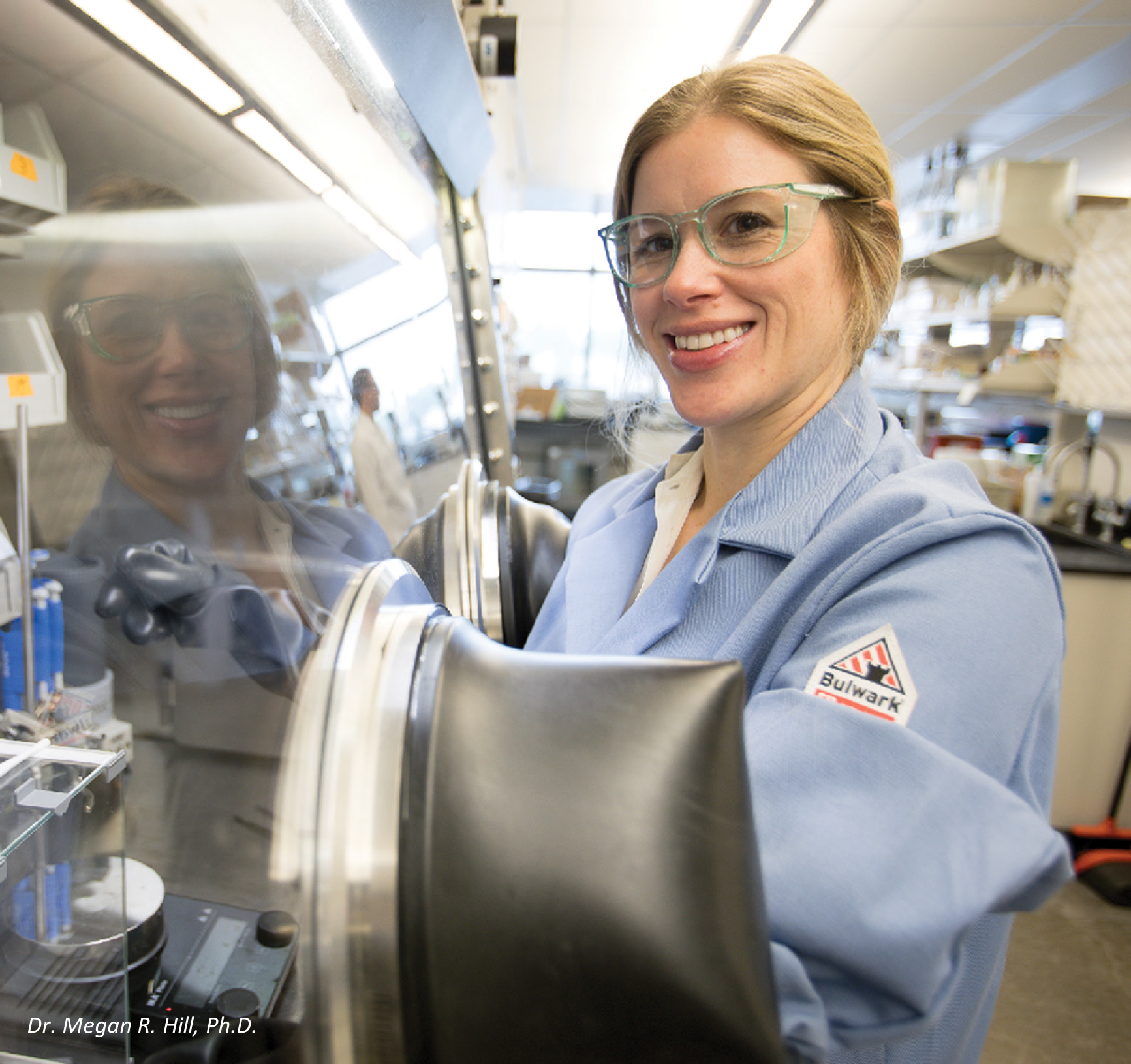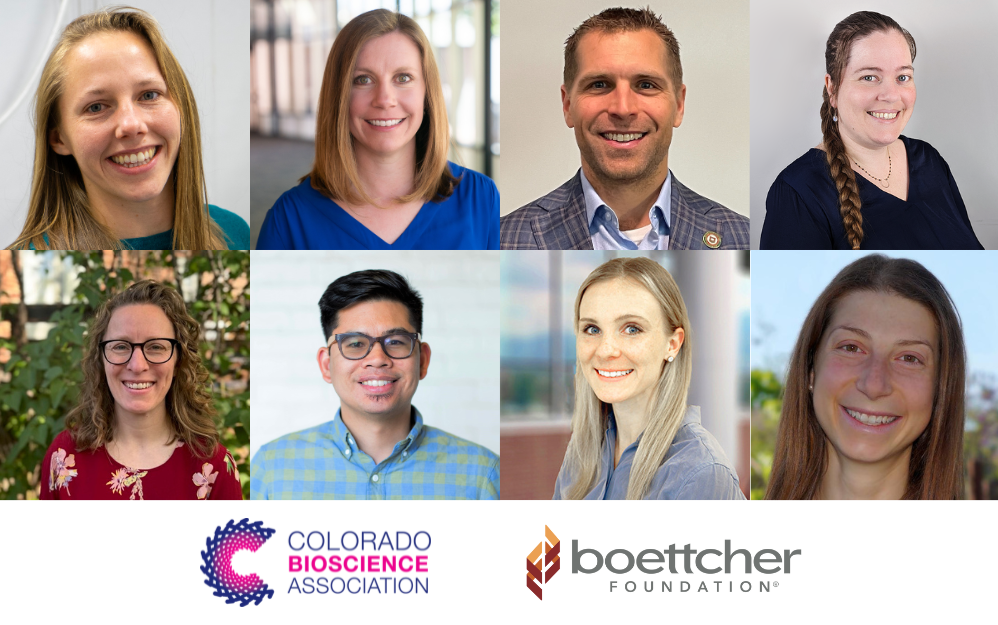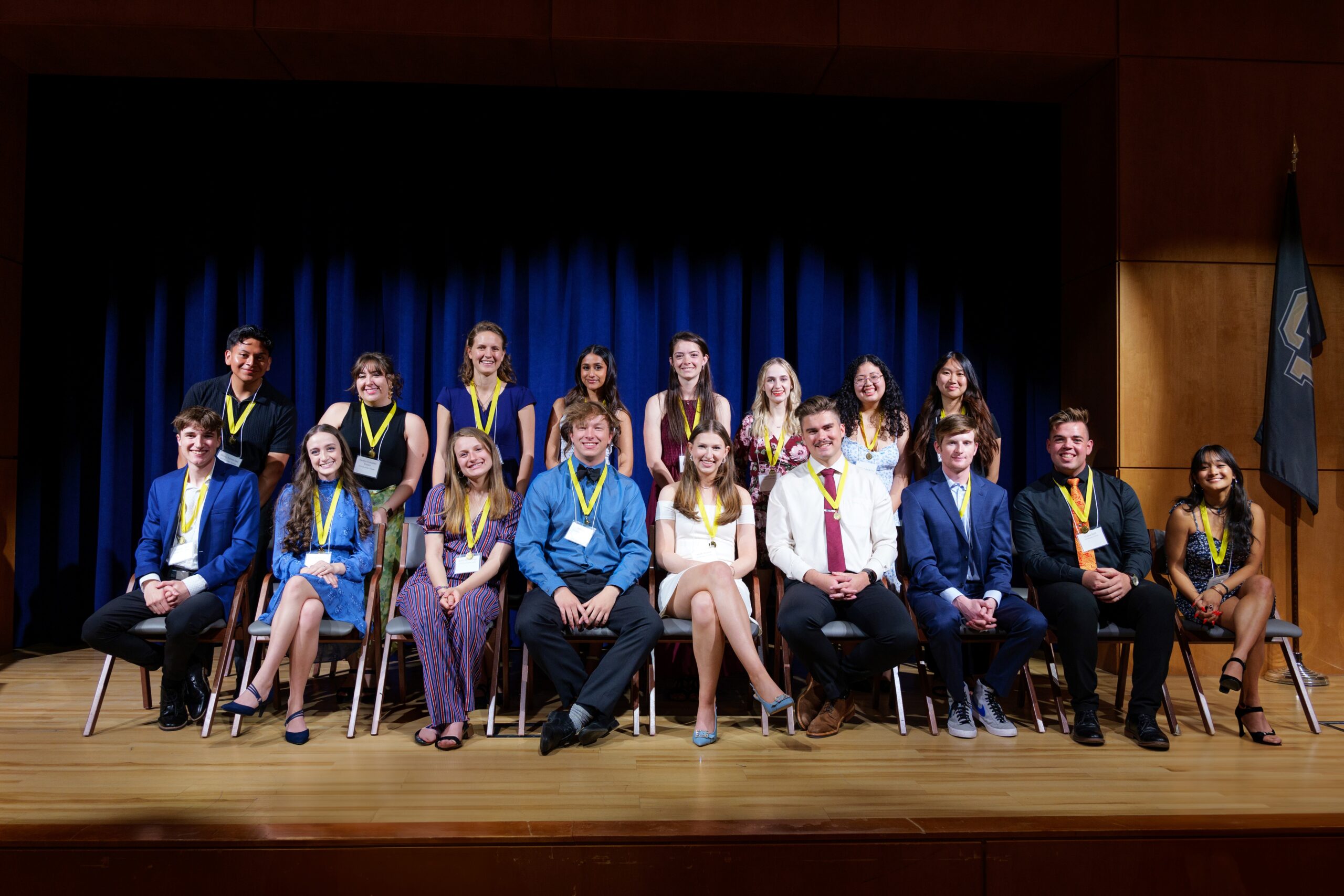Megan Hill, Ph.D. has studied polymers since the early stages of her journey in chemistry. As it turns out, she shares something in common with these molecules she has dedicated her career to investigating: the principle that small changes lead to major impacts is as true for polymer chemistry as it is for the impact of Hill’s work.
“I always found polymer chemistry really interesting because we get to do the actual chemical synthesis. So, in the lab, making molecules; but then, we get to see how making those molecules influences the behavior on a more macroscopic level,” said Hill, Assistant Professor of Chemistry at Colorado State University. “You get to say, ‘wow, this is totally different because of these small changes I made to the chemical structure.’”
The way researchers like Hill work to advance health innovation reflects how incremental changes make bigger impacts. The process begins on a smaller level – with a problem or question – and often, without knowledge of the full impact the work may have. Over time, this seemingly small-scale impact has the potential to revolutionize the entire system, allowing practitioners to do things in newer, more efficient ways.
Hill is one of eight 2023 Boettcher Investigators united in this endeavor of researching bio-medical topics to save and change patient lives. Each year, the Boettcher Foundation selects high-potential, early-career Colorado researchers to receive the Webb-Waring Biomedical Research Award – a $235,000 grant to fund up to three years of biomedical research. This year’s award winners come from four Colorado research institutions: Colorado State University, University of Colorado Anschutz Medical Campus, University of Colorado Boulder, and National Jewish Health.
In its 13 years, the program has provided critical funds to support exploratory research topics. And this year is no exception. From studying the mechanics of mucus organization to macrophages and smoking-induced lung disease, the investigators and their research topics have the potential to push the boundaries of what is currently possible in medicine.
EXPLORING LIFE-SAVING POSSIBILITIES FOR PATIENTS
Hill is applying her Webb-Waring award funding towards studying how to control and predict hydrogel properties in order to use them for various biomedical applications, such as sustained release of drugs or to spray on an organ to prevent bleeding after surgery.
“Hydrogels have the opportunity to revolutionize many aspects of medical treatment and disease targeting,” Hill said. “Being able to target those specific diseases and conditions will absolutely make this technology come to life. It’s clear that hydrogels have all these amazing properties – they interface with biology, they’re full of water, you can tune the properties to make them similar to your tissues – but to not be able to fully control those properties or predict how they are going to change when they’re in the body is something that is a big hindrance in their application right now.”
About 70 miles south of Hill’s lab in Fort Collins is another Boettcher Investigator exploring the possibilities at the intersection of technology and medicine, focused on artificial intelligence and natural language processing.
Neel Butala, M.D., M.B.A., an Assistant Professor of Cardiology at the University of Colorado Anschutz Medical Campus, has always been interested in creating long- lasting, systems-level change, but in a way that allows him to stay close to patients and the individuals impacted by his work. He will use his award to explore the possibility of using natural-language processing techniques to impact the way clinical trials are conducted.
As it stands, Butala explains, there are many factors that make clinical trials complex and difficult. In fields like cardiology, trials need to be able to last over an extended number of years to see if any “events” – such as heart attacks, strokes, or death – occur after a certain surgery was performed.
“Right now, to see if someone had an event or not, clinical trial sites fill out forms and send them to a centralized committee, doctors review it, and there’s a clinical events committee who determines if the event is or isn’t a heart attack, for example,” Butala said. “They have to make these calls that are often subjective. That’s the traditional process – it’s time consuming, expensive, and you have to hire these doctors. My thought was, can we replace some of this with real-world data and advanced analytics?”
Butala is hoping to apply this technology directly to medical records of clinical trial patients in order to collect information for the trial. The plan is to experiment with this technology by comparing the data it collects from medical records to that of an already well-established, traditional trial. Butala is using a clinical trial of endoscopic vs. open- vein graft harvesting for coronary-artery bypass surgery, known as REGROUP, as a basis for this research.
The significance of both Butala’s and Hill’s research is that both are beginning with the intent to test ideas on a relatively smaller scale.
However, the idea is to apply these same principles to broader contexts to impact more lives through biomedicine over time.
When it comes to both hydrogels and natural language processing in clinical trials, the possibilities are endless.
“Hydrogel technology, regardless of what we do, is going to change the field and being able to predict those properties will be incredible,” says Hill.
Butala also acknowledges how powerful and universal natural language processing can be.
“This research is applying innovative techniques and deep learning and natural language processing to advance clinical trials in medicine, which generates evidence in medicine. That’s pushing the boundaries of applying this novel computer science, linguistics technology to clinical trials to generate knowledge.”

TURNING CHALLENGES INTO BREAKTHROUGHS
As apparent in many industries and everyday contexts, new technology, while exciting, presents a novel set of challenges and complexities to work through. Researchers like Hill and Butala are well aware of the challenges that come when pursuing cutting-edge medical solutions.
“Actually controlling and predicting the properties [of polymers] is a big limitation in this field right now. There are all these potential applications, but it’s really difficult to say ‘we have this disease, we need this type of release, so this is the hydrogel we will use,’ and that’s because we really can’t tune the properties the way we want to,” said Hill.
Of course, the unpredictable nature of this challenge presents opportunity, as Hill and her team push to find solutions involving changing the crosslinks of polymers and the materials themselves. These complexities define what makes this work unique and meaningful – entering uncharted waters to advance medicine. The hope is these challenges are overshadowed by the positive impacts of such breakthroughs.
ADDRESSING BIAS IN CLINICAL TRIALS
Butala is no stranger to challenges technology brings in his work, either. Organizations and industries across the globe tapping into AI technology are dealing with a multitude of challenges, particularly ethical issues.
“The problem with AI is it basically can accentuate disparities or biases. In this context, could it be that doctors somehow under-report chest pain systems for women vs. men, or Black patients vs. white patients? … There’s always a risk that there are subtle biases that, in the end, could exacerbate disparities,” he said.
Similar to Hill, Butala understands that recognizing a challenge such as bias presents an opportunity to create a stronger, more efficient technology that can overcome this hurdle. He and his team are looking at how to train the model and create an algorithm that would mitigate these issues.
CONNECTING TO THE HEALTH INNOVATION COMMUNITY
While these modern techniques and technologies are integral pieces of biomedical advances, traditional principles of human-centered work and community collaboration remain as prevalent as ever. Researchers understand the support around them is key, especially when engaging in interdisciplinary topics.
Butala’s everyday environment inspires him to keep his patients at the center of his research.
“Working at the VA is amazing. It’s great that everyone is unified around patient care … There’s no turf war between groups, everyone works together and so it’s mission-driven, patients are very grateful for the care they receive, and it’s very gratifying to take care of them.
In addition, Butala acknowledges the role that Larry Allen, M.D., Interim Chief of Cardiology at CU Anschutz, has played in his research process. Butala knew about Allen as a leader in cardiology research long before even considering the job in Colorado.
“He [Dr. Allen] runs this group of people who conduct outcomes research across universities to bounce research ideas off each other,” said Butala. “That’s been a great resource to learn about what other people are doing. I actually presented a version of this work to that group, and I got some valuable feedback and so, this group … helps a lot.”
Now that Butala has been named a Boettcher Investigator, he and Allen share another commonality in addition to cardiology research and practice. Allen himself has been associated with the Boettcher Foundation for over 30 years, first as a Boettcher Scholar, and later serving as a foundation trustee.
Community was a huge factor for Hill in determining where she wanted to work, research, and build a career. During the interview process, she noticed CSU stood out in terms of how inclusive, kind, and supportive everyone was. Additionally, the opportunity to interact with other scientists influences her work.
“One thing I’m really excited about in winning this award is the connections to so many medical professionals and people that focus a lot on biotechnology. I hope that I can meet some people that are looking at specific conditions that we might be able to target with these hydrogels,” said Hill.
Propelling healthcare into the future requires efforts and contributions from multiple angles, which creates this collaboration Hill references to be integral in the process.
The combination of cutting-edge technology and tapping into the bright scientific minds will yield an overall better standard for patient care.
Whether it’s enacting small changes on a molecular level or tweaking an AI algorithm, each subtle discovery contributes towards creating significant, life-altering solutions that will one day systemically revolutionize the healthcare system as we know it.




